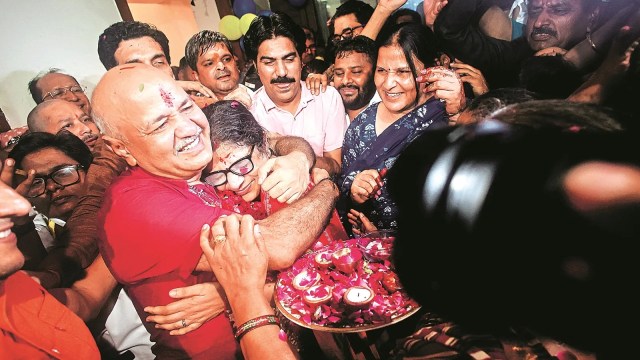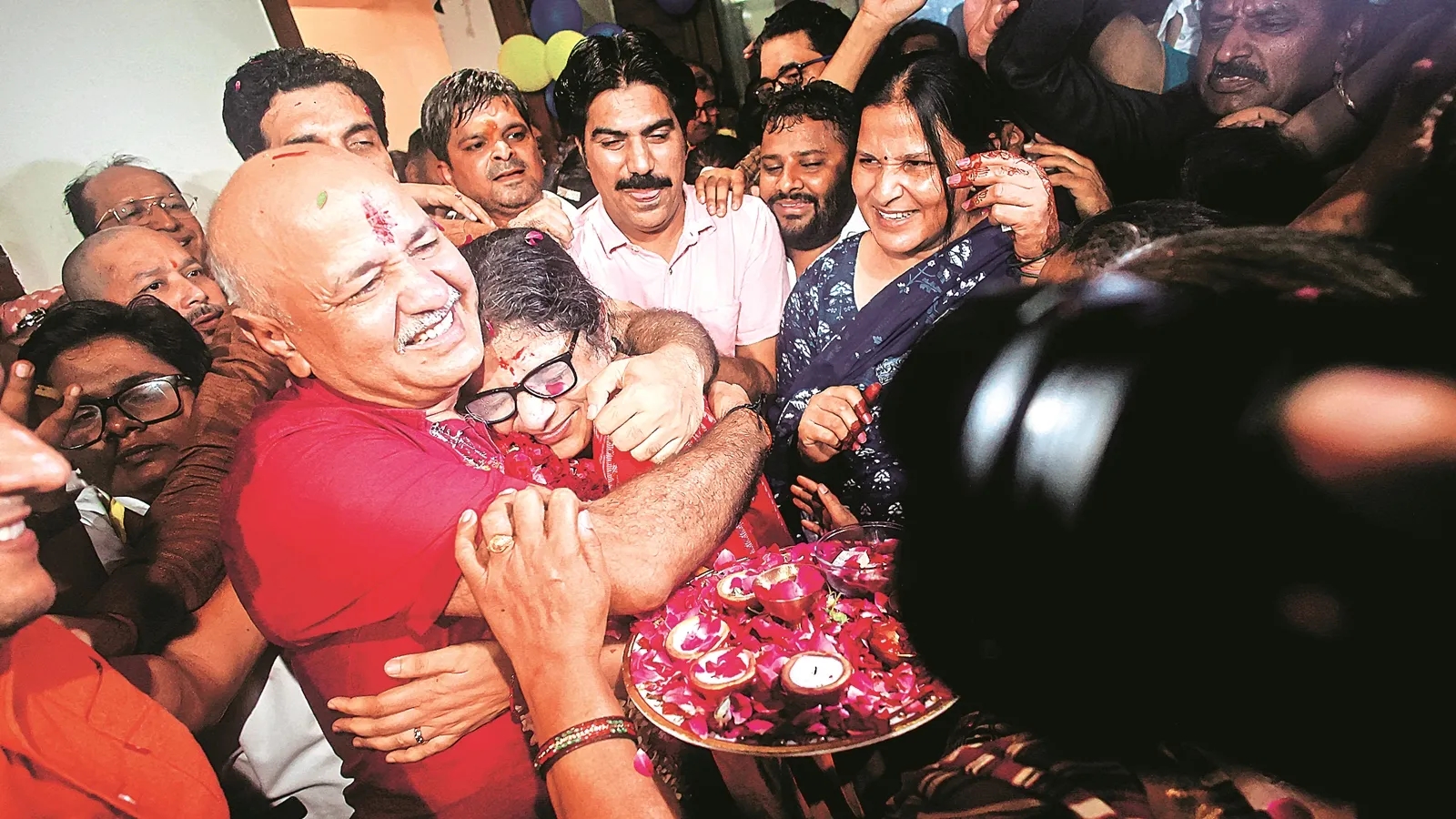
On August 9, the Supreme Court delivered a landmark judgment in Manish Sisodia’s case holding that a speedy trial is a fundamental right within the broad scope of Article 21 of the Constitution, which includes the right to live with dignity.
The judgment not only sets Manish Sisodia free but also holds hope for lakhs of prisoners who are languishing in jail without trial or on account of the slow pace of trials. Although the SC has said nothing new, this verdict goes beyond salutary words. It has acted on its stated position. More importantly, it has held that the right to speedy trial should be read in Section 45 of the Prevention of Money Laundering Act (PMLA), which says that no person shall be released on bail unless the court is satisfied that there are reasonable grounds for believing that he is not guilty of such offence, and that he is not likely to commit any offence while on bail. In other words, the PMLA puts the burden of proving innocence on the accused — a departure from normal criminal jurisprudence where the burden of proving guilt lies on the prosecution. Notwithstanding this draconian provision that virtually makes it impossible for an accused to obtain bail, the Court has held that Section 45 of the PMLA will not come in the way of granting bail to an accused if he is suffering long incarceration without trial or due to a slow trial.
As of now, Sisodia is a free man, thanks to the SC. But this freedom has come to him at a heavy price. Seventeen months in jail, when jail and not bail is the rule. Who is to be blamed? The state or the courts? The SC has chided both in its order.
Sisodia first approached the SC in October 2023 after his bail application was rejected both by the trial and High Court. The SC too rejected his bail application on the basis of representations made to it by the prosecution that the trial would be concluded in 6-8 months. With the greatest of respect to the SC, it was as clear that given the complexity of the case, and the fact that even the chargesheet had not been filed, there was no way that the trial would be concluded within that time.
During the hearing, the then bench of the Supreme Court had reportedly observed that except for the statement of a businessman-turned-approver, there was no evidence against the accused. But when it came to the crunch, Sisodia’s bail was rejected. What happened to the words of the Supreme Court “that in the matter of personal liberty every day counts”? They were as true in October 2023 and as on August 9, 2024.
The falsity of the prosecution’s assurance is evident from the fact that it proposes to examine 493 witnesses, and besides that, the case involves thousands of pages of documents, and over a lakh pages of digitised documents.
The SC is also critical of the trial court and High Court. It observed both should have considered the long period of incarceration without trial. It further observed that the high courts and trial courts play safe and fail to recognise that “bail is the rule and jail an exception”. The SC added that it is high time these courts recognise this rule. The SC’s observations could not be more true. In some cases, courts even go into overdrive to support the prosecution’s case. If any proof is needed, one has to go back a little when an Honourable Judge of the High Court stayed the order releasing Arvind Kejriwal even before the impugned order of the trial court was uploaded.
We all know that law has to be obeyed and respected, but what happens when state-controlled agencies, meant to protect the citizen, are seen to be acting as a tool to prosecute and deprive her of the constitutional right to live with dignity? In such circumstances, courts are supposed to act as a shield against the tyranny of the state. Therefore, in the words of the SC, it is high time that the trial and high courts recognise their legal and constitutional duty to act in appropriate cases, and not add to the burden of the apex court. The petitioner before the SC was not an ordinary citizen nor devoid of means to engage high profile lawyers to represent him, and yet suffered long months of deprivation of liberty.
The plight of common citizens would be much worse.
The writer is a former judge of the Delhi High Court



